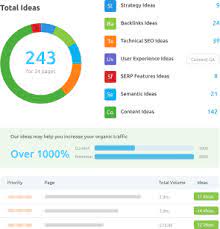The Power of Data Analytics in Business Intelligence
Data analytics and business intelligence have become essential tools for modern businesses looking to gain a competitive edge in today’s data-driven world. By harnessing the power of data, companies can extract valuable insights that drive informed decision-making and strategic planning.
Understanding Data Analytics
Data analytics involves the process of examining raw data to uncover patterns, trends, and correlations. By using various techniques and tools, businesses can transform complex data sets into meaningful information that guides their actions. This analytical approach enables organisations to identify opportunities, mitigate risks, and improve operational efficiency.
The Role of Business Intelligence
Business intelligence (BI) complements data analytics by providing a framework for collecting, storing, and analysing data to support decision-making processes. BI tools offer interactive dashboards, reports, and visualisations that help stakeholders understand complex data quickly and easily. By consolidating information from multiple sources, BI enables businesses to monitor performance, track key metrics, and identify areas for improvement.
The Benefits of Data-Driven Decision Making
Embracing data analytics and business intelligence offers numerous benefits to organisations across industries:
- Improved Decision Making: Data-driven insights enable informed decisions based on evidence rather than intuition.
- Enhanced Performance: Monitoring key performance indicators (KPIs) allows businesses to track progress towards goals and make adjustments as needed.
- Competitive Advantage: Leveraging data effectively can uncover market trends, customer preferences, and opportunities for innovation.
- Risk Mitigation: Identifying potential risks early through data analysis helps businesses proactively address challenges before they escalate.
The Future of Data Analytics in Business Intelligence
As technology continues to evolve rapidly, the future of data analytics and business intelligence looks promising. Advancements in artificial intelligence (AI), machine learning, and predictive analytics will further enhance the capabilities of these tools. Businesses that embrace these technologies will be better positioned to adapt to changing market dynamics and drive growth in the digital age.
In conclusion, data analytics and business intelligence are indispensable assets for any organisation seeking to thrive in a competitive landscape. By harnessing the power of data-driven insights, businesses can unlock new opportunities, drive innovation, and achieve sustainable success in an increasingly complex business environment.
Understanding Data Analytics and Business Intelligence: Key Differences, Benefits, and Implementation Strategies
- What is the difference between data analytics and business intelligence?
- How can data analytics benefit my business?
- What are the key components of a successful business intelligence strategy?
- What tools and technologies are commonly used in data analytics and business intelligence?
- How can businesses ensure data security and privacy when implementing BI solutions?
- What role does artificial intelligence play in enhancing data analytics and business intelligence capabilities?
What is the difference between data analytics and business intelligence?
A common query in the realm of data analytics and business intelligence is the distinction between the two concepts. While data analytics focuses on examining raw data to uncover patterns and insights, business intelligence encompasses a broader scope by providing a framework for collecting, storing, and analysing data to support decision-making processes. In essence, data analytics delves into the specifics of data interpretation, whereas business intelligence offers a comprehensive approach that includes visualisations, reports, and dashboards to facilitate strategic planning and performance monitoring within an organisation. Understanding this difference is crucial for businesses looking to leverage both disciplines effectively to drive informed decision-making and gain a competitive edge in today’s data-driven landscape.
How can data analytics benefit my business?
Data analytics can significantly benefit your business by providing valuable insights that drive informed decision-making and strategic planning. By analysing data trends, patterns, and correlations, you can uncover hidden opportunities, identify potential risks, and optimise operational efficiency. Data analytics empowers you to understand customer behaviour, market trends, and performance metrics more effectively, enabling you to make data-driven decisions that lead to improved outcomes. Ultimately, leveraging data analytics in your business operations can give you a competitive edge, enhance performance, and foster innovation in today’s data-driven landscape.
What are the key components of a successful business intelligence strategy?
A successful business intelligence strategy comprises several key components that are essential for driving informed decision-making and maximising operational efficiency. These components typically include data integration, data quality management, data visualisation tools, performance management, and self-service analytics capabilities. Data integration ensures that information from various sources is consolidated and accessible for analysis. Data quality management focuses on maintaining accurate and reliable data to support reliable insights. Utilising robust data visualisation tools enables stakeholders to interpret complex data easily through interactive dashboards and reports. Performance management involves tracking key performance indicators (KPIs) to monitor progress towards strategic goals. Lastly, self-service analytics empowers users across the organisation to explore data independently, fostering a culture of data-driven decision-making and innovation. By incorporating these key components into their business intelligence strategy, organisations can harness the full potential of their data assets to gain a competitive advantage in today’s dynamic business landscape.
What tools and technologies are commonly used in data analytics and business intelligence?
A wide range of tools and technologies are commonly used in data analytics and business intelligence to extract insights from complex data sets. Some popular tools include data visualisation platforms like Tableau and Power BI, which enable users to create interactive dashboards and reports for easier data interpretation. Data processing tools such as Apache Hadoop and Spark are widely used for handling large volumes of data efficiently. In addition, programming languages like Python and R are utilised for advanced statistical analysis and machine learning algorithms. Database management systems such as SQL Server and Oracle provide robust storage solutions for organising and querying data effectively. These tools play a crucial role in empowering businesses to make informed decisions based on actionable insights derived from their data analytics and business intelligence processes.
How can businesses ensure data security and privacy when implementing BI solutions?
Ensuring data security and privacy is a critical consideration for businesses when implementing business intelligence (BI) solutions. To safeguard sensitive information, organisations can adopt various measures such as implementing robust encryption protocols, restricting access to authorised personnel only, and regularly monitoring data usage and access logs. Additionally, conducting thorough security assessments, compliance audits, and providing comprehensive employee training on data handling best practices are essential steps to mitigate potential risks. By prioritising data security and privacy in BI implementations, businesses can build trust with customers, protect valuable assets, and comply with regulatory requirements in an increasingly data-centric environment.
What role does artificial intelligence play in enhancing data analytics and business intelligence capabilities?
Artificial intelligence (AI) plays a pivotal role in enhancing data analytics and business intelligence capabilities by automating complex processes, improving accuracy, and providing deeper insights. AI algorithms can process vast amounts of data at high speed, identifying patterns and trends that might be missed by traditional analytical methods. Machine learning, a subset of AI, enables systems to learn from data and improve their performance over time without explicit programming. This allows businesses to make more accurate predictions and informed decisions. Additionally, AI-powered tools can generate advanced visualisations and automate routine tasks, freeing up analysts to focus on strategic activities. By integrating AI into data analytics and business intelligence frameworks, organisations can achieve greater efficiency, uncover hidden opportunities, and maintain a competitive edge in the market.






